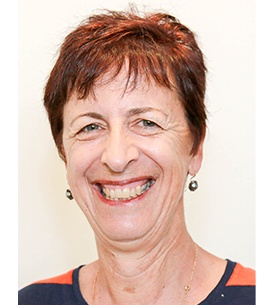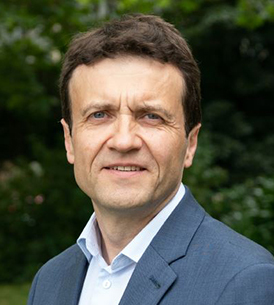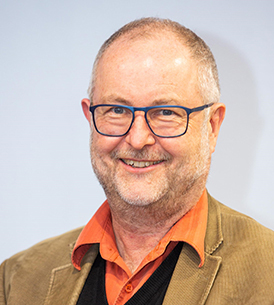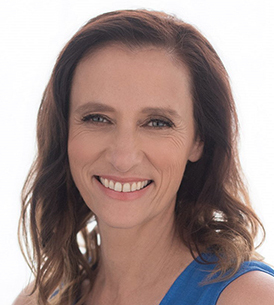Opioid prescribing: strategies for GPs 2024
Opioid prescribing: strategies for GPs 2024

Our webinar series will be closing on the 23 December 2025. Your certificates will continue to be available.
Recorded on Thursday 15 October 2020
Opioid prescribing: strategies for GPs to optimise chronic non-cancer pain management and minimise harms 2024
Join our panel of chronic pain experts as they discuss evidence-based approaches for managing chronic non-cancer pain and how GPs can implement these to reduce opioid-related harms.
This webinar has been developed with funding from the Therapeutic Goods Administration, Australian Government Department of Health.
This webinar has been developed in collaboration with ACRRM, RACGP and RDAA.

Target audience: GPs
Open to: All health professionals and students
Cost: Free
CPD points: Self-directed CPD view details
View the learning outcomes.
The 2024 enrolment version.
2023 enrolments have closed.
About the webinar
Discussion points for this webinar are based on feedback from over 450 GPs who completed our health professional survey on what they wanted to know about the recent reforms to prescribing of opioid medicines.
The panel will cover three key themes that were identified as important:
- Considerations when trialling opioids for chronic non-cancer pain.
- How to identify patients at increased risk of harm, and strategies for minimising harm.
- Appropriate strategies and practical ways to support patients during the opioid tapering process.
Meet the panel
This webinar brings together a panel of top Australian experts who specialise in the areas of chronic pain management and opioid dependence.
Dr Milana Votrubec (facilitator)

Dr Milana Votrubec, general practitioner and pain management consultant in Mosman, Sydney, is a Fellow of RACGP and the Faculty of Pain Medicine, ANZCA.
Milana holds a senior position as a clinical tutor for the Graduate Medical Programs at Notre Dame University and is an Honorary Consultant to the journal Medicine Today. She is an elected Member of the NSW Faculty of Pain Medicine Regional Committee and is an examiner for this Faculty. Milana is the current Chair of the RACGP Specific Interests Network for Pain Management.
A/Prof Malcolm Hogg

A/Prof Hogg is a past-President of the Australian Pain Society and current board member of Painaustralia. He has advised on the development of the National Strategic Action Plan for Pain Management and contributed to the development of the National Pain Service directory.
Current activity includes membership of government committees on opioid monitoring (SafeScript), and work in the development of models of care for pain services.
At Royal Melbourne Hospital, Dr Hogg supervises a coordinated range of services, linking inpatient acute and interventional pain management with outpatient multidisciplinary services. This includes management strategies for chronic cancer and non-cancer pain and telehealth-linked support to clinicians in western Victoria. Research activity includes early identification and management of people with acute pain at risk of developing chronic disabling pain, opioid and paracetamol pharmacology, and the use of ketamine to reduce persistent pain.
Dr Simon Holliday

Dr Simon Holliday has been a rural general practitioner in NSW for three decades and a part-time staff specialist for the Drug and Alcohol Clinical Services of the Hunter New England Local Health District at Manning Hospital, Taree. He is immediate past chair of the RACGP Specific Interests Network for Pain Management and a Conjoint Lecturer, School of Medicine and Public Health, University of Newcastle.
Simon has been principal author and/or collaborator on several opinion pieces and research studies on the management of pain, addiction and psychoactive pharmaceuticals in general practice, and the evaluation of such education for GPs.
Dr Hester Wilson

A Fellow of RACGP and a Fellow of the Chapter of Addiction Medicine in the RACP, Dr Wilson completed her Masters in Mental Health in 2013. She has worked in primary health care settings for the last 25 years.
With many years of working with people experiencing alcohol and other drug issues, Hester has a particular interest in opioids and prescription opioid use disorder. Currently undertaking a PhD, she works in general practice in Newtown, Sydney and is a staff specialist in addiction medicine in South East Sydney Local Health District.
CPD points
Self-directed CPD
It is recommended that 1 CPD hour be recorded for the purposes of self-directed CPD.
Learning outcomes
By the end of this activity, participants will be able to:
- Identify patients with risk factors and implement strategies to reduce opioid-related harms
- Recommend appropriate strategies and support patients during the opioid tapering process to increase the chance of success
- Identify and refer patients with complex needs to appropriate support services